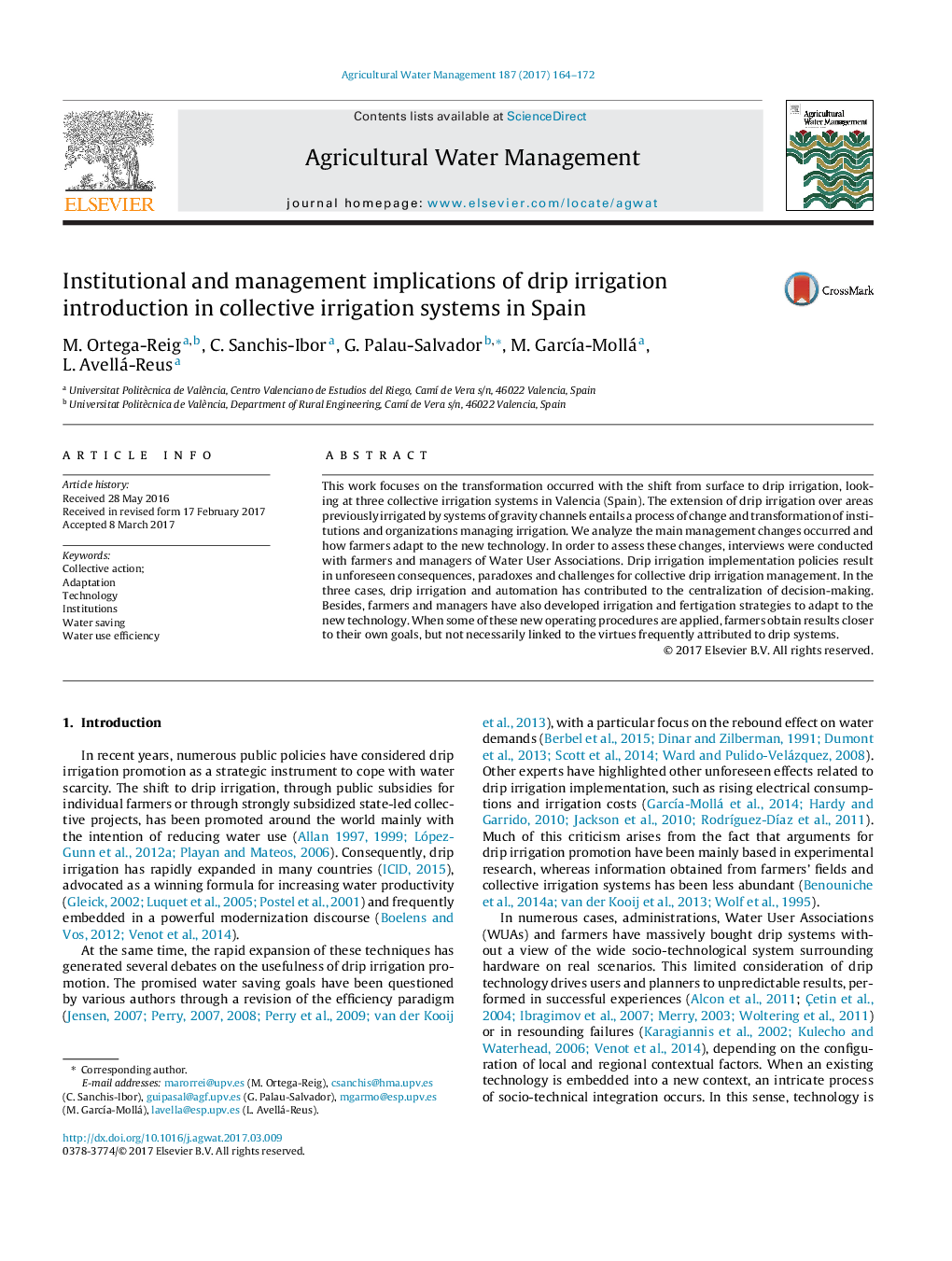| Article ID | Journal | Published Year | Pages | File Type |
|---|---|---|---|---|
| 5758502 | Agricultural Water Management | 2017 | 9 Pages |
Abstract
This work focuses on the transformation occurred with the shift from surface to drip irrigation, looking at three collective irrigation systems in Valencia (Spain). The extension of drip irrigation over areas previously irrigated by systems of gravity channels entails a process of change and transformation of institutions and organizations managing irrigation. We analyze the main management changes occurred and how farmers adapt to the new technology. In order to assess these changes, interviews were conducted with farmers and managers of Water User Associations. Drip irrigation implementation policies result in unforeseen consequences, paradoxes and challenges for collective drip irrigation management. In the three cases, drip irrigation and automation has contributed to the centralization of decision-making. Besides, farmers and managers have also developed irrigation and fertigation strategies to adapt to the new technology. When some of these new operating procedures are applied, farmers obtain results closer to their own goals, but not necessarily linked to the virtues frequently attributed to drip systems.
Related Topics
Life Sciences
Agricultural and Biological Sciences
Agronomy and Crop Science
Authors
M. Ortega-Reig, C. Sanchis-Ibor, G. Palau-Salvador, M. GarcÃa-Mollá, L. Avellá-Reus,
